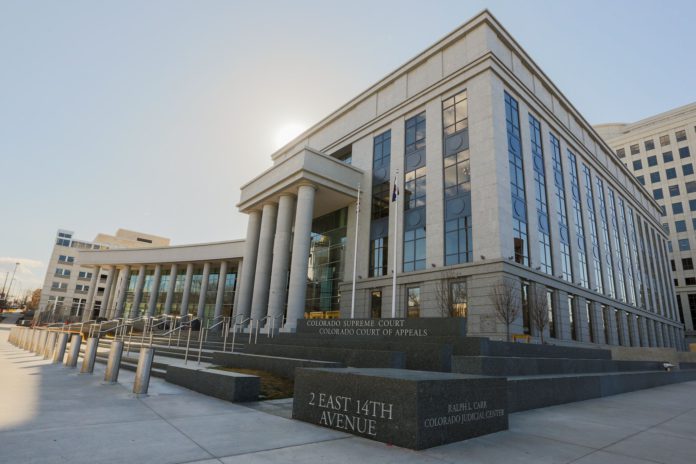
The Court of Appeals made a ruling in a sexual assault case that touches on both the admissibility of expert testimony and Colorado’s criminal rape shield law. The latter typically precludes defenses from using information about an accuser’s sexual history as evidence, but in this case, the Court of Appeals decided the defendant should have gotten a hearing for allowing evidence about his accuser’s alleged history of making up sexual assault allegations.
Edmund Marx appealed his convictions of sexual assault on a child and aggravated incest. The accuser claimed Marx had sexually assaulted her multiple times when she was a teenager. On appeal, Marx claimed the La Plata County District Court erred when it allowed an expert witness to testify for the prosecution about various statistics of people who make up allegations of sexual assault.
Marx argued the court also erred by excluding a neighbor’s testimony about the accuser’s truthfulness and by rejecting a request by the defense for an evidentiary hearing under Colorado’s rape shield law to determine the admissibility of evidence about the accuser’s purported history of falsely accusing others of sexual assault.
“The law must weigh the consequences of invading the accuser’s privacy and the related risk that sexual assaults may go unreported if victims fear embarrassment or intimidation,” wrote Judge Lino Lipinsky de Orlov for the Court of Appeals panel. In this case, the panel found the trial court improperly balanced the defendant’s efforts to challenge the truthfulness of the accuser against the prosecutor’s evidence bolstering the accuser’s credibility.
The Court of Appeals decided the trial court should not have allowed the expert witness’s testimony because it served to bolster the accuser’s credibility, a purpose typically not allowed for expert testimony unless it’s admissible as character evidence. “Expert testimony that children tend not to fabricate stories of sexual abuse is ‘tantamount to [an expert] testifying that [a] child victim was telling the truth about her allegations,’” Lipinsky wrote.
By contrast, expert witnesses are allowed to testify about how victims of sexual assault might act following an incident in order to help a jury understand an accuser’s behavior.
Denver criminal defense attorney Dan Recht said the Court of Appeal’s decision on the expert testimony is not a new interpretation of case law. Specific to this case, he said it’s too difficult to accurately figure out the percentage of sexual assault allegations by children that are made up.
“You can’t base it on jury verdicts, because jury verdicts don’t tell truth or not truth. They just tell guilt or not guilt,” Recht said.
But the Court of Appeals agreed with the trial court’s decision not to admit testimony by a neighbor about the accuser’s supposed history of untruthfulness. The testimony focused on “incidents” she had created at the neighbor’s ranch by supposedly mistreating dogs and purposely interfering with her father’s work to get attention. Lipinsky wrote such testimony doesn’t bear on the accuser’s credibility and has “dubious relevance.”
The Court of Appeals overturned the trial court’s denial of an evidentiary hearing under Colorado’s criminal rape shield law to admit evidence about the accuser’s purported history of falsely accusing schoolmates of sexual assault. The trial court determined an affidavit submitted by the Durango public defender’s office didn’t say by a preponderance of evidence that the accuser’s past allegations are false in fact in order to trigger an evidentiary hearing.
But Lipinsky wrote the trial court didn’t actually apply the preponderance of evidence standard, and instead set a high bar for admitting the evidence by requiring proof the accuser’s prior accusations were false in fact.
The rape shield law does have a few exceptions to its presumption that an accuser’s sexual history is inadmissible as evidence. It has to be “relevant and material,” and the defense has to follow specific procedures in the law for getting the evidence admitted.
The Court of Appeals noted Marx’s defense brought up several incidents of the accuser supposedly making false sexual assault allegations in the past, and also referenced specific witnesses who could testify about the untruthfulness of those accusations.
Criminal defense attorney Iris Eytan said she believes this portion addressing an evidentiary hearing under the criminal rape shield statute is the decision’s most significant part. Judges typically apply the law as a bright-line ban on evidence about an accuser’s prior history, she said, and the Marx decision gives defense lawyers a tool for bringing evidence that questions accusers’ credibility when they believe it’s warranted.
“The most revelatory outcome of this case, I think, is that now judges [maybe] are going to stop using such a bright-line test when they hear the words ‘rape shield’ from a defense lawyer,” Eytan said. “Now this case causes pause, and it says the standard is actually not as high as I think most judges believe it to be.”
She added although Colorado’s criminal rape shield law has been on the books for years, there isn’t a lot of case law interpreting it. She believes the defense in the Marx case made a strong case for striking the prosecution’s expert testimony, and for getting an evidence hearing on the accuser’s history of false allegations.
“Finally now there’s going to be an opening for defendants to get a fair hearing [under the] rape shield.”
—Julia Cardi

